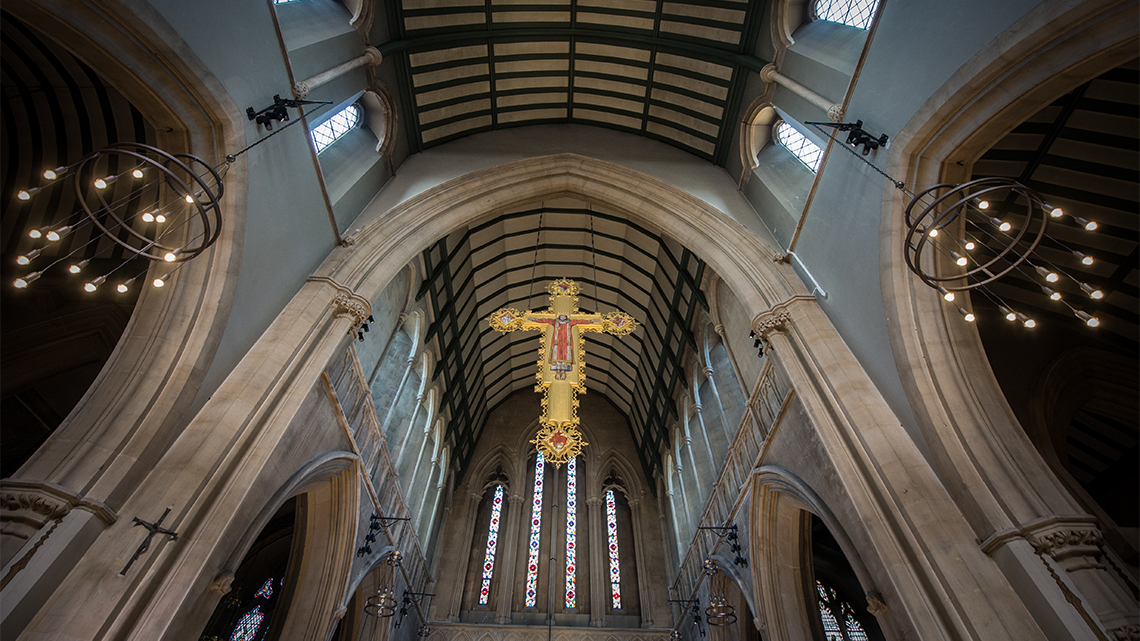The third of our Advent reflections focusing on the Sundays of Advent

At the birth of John the Baptist, Zechariah, his father filled with the Holy Spirit, prophesied:
And you, child, will be called the prophet of the Most High; for you will go before the Lord to prepare his ways, to give knowledge of salvation to his people in the forgiveness of their sins
Luke 1:76-77 ESV-CE
One couldn’t have any higher accolade than to be called ‘the prophet of the Most high’, yet that loyalty to his prophetic mission would soon be the very thing that brings him to a miserable death. Jesus himself attests John to be more than a prophet, which is a good thing for John. He was not only questioning whether Jesus was the ‘one who is to come’ but he was questioning himself, his own judgement. John was using the wrong set of criteria, his intent, his mission was to prepare for the one who would ‘clear the threshing-floor’ (Mt.3:12) by a ministry of judgement. Jesus was not preaching the Kingdom in that way, but in another way equally recognisable from the prophets of the Old Testament in their expectation of the Messiah. Jesus was preaching the Good News to the poor, he was bringing healing through miracles, raising the dead to life and like John preaching forgiveness through repentance.
John should have had no fear of being wrong, for Jesus says of him, ‘of all the children born of women, a greater than John has never been seen.’ But why? we must ask. He had never been one to whom the people went because of his influence or power or because he was royalty or a celebrity figure, quite the contrary, they recognised him as a prophet and were made uncomfortable by his prophetic preaching, warnings that would shortly bring about his death.
After paying him this compliment, Jesus seems to row back on what he has said by saying, ‘yet the least in the kingdom of heaven is greater than he is.’ The greatest are the ‘little ones’ who realise their dependence on God (Mt.18:4-6)
John we know bridges the divide of the Old and the New. Having one foot in the time of Messianic preparation, he is less than the saints of the Resurrection era. The other he has in the Kingdom for he is the first to suffer the violence directed at the kingdom that is yet to be established through Jesus’ death and resurrection.
As John has witnessed to Jesus, now Jesus witnesses to John. This is where we return to the accolade. It is from the book of Exodus (23:20-21) that the words, ‘I am going to send my messenger before you’ are taken and concern specifically Isarel’s march to the land of Canaan, the land flowing with milk and honey suggesting that John is leading Israel into a new promised land. He is certainly going ahead of the Lord by proclamation of the truth and in death.
S. Robert Bellarmine says of John the Baptist, “He was poor in spirit, and for that reason inflexible in virtue. There are many who stray from the path of virtue through love or through fear. He loved only God and feared nothing except to offend God. … All those who within the church have the role of preparing the way for the Lord -and that is us all- must imitate the Baptist.”
Rt Rev. Peter Brignall
Rt Rev. Peter Brignall is the Catholic Bishop of Wrexham. In 2010, he was appointed to the Liturgy Committee of the Bishops’ Conference Department for Christian Life and Worship and is currently the Chair of CaTEW.